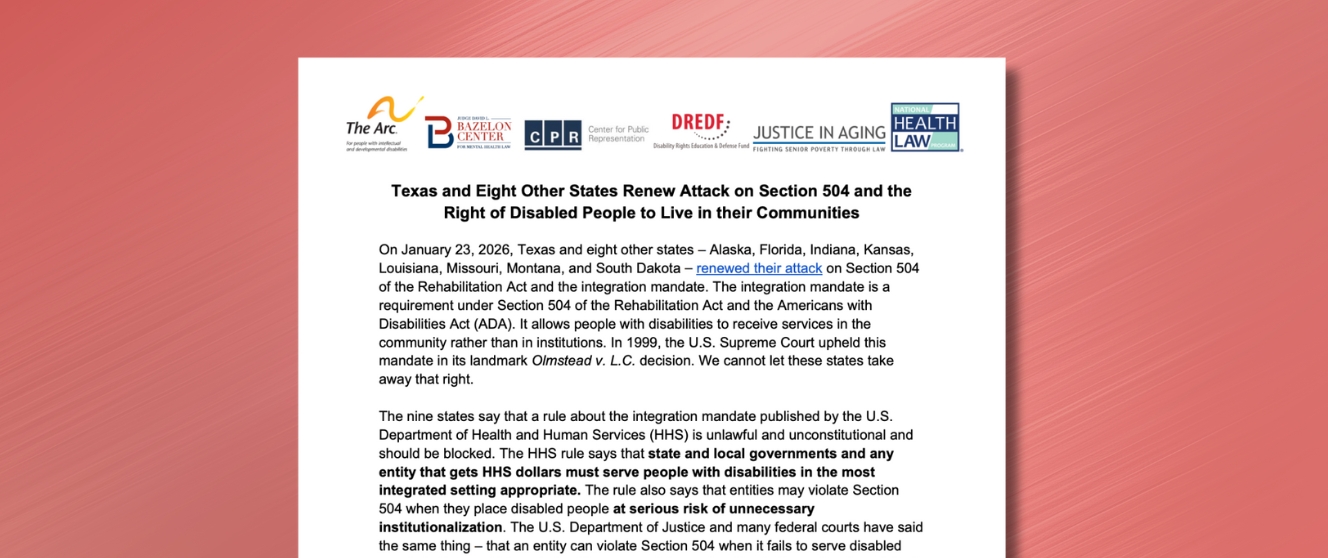
“The Secretary never adequately considered whether Kentucky HEALTH would in fact help the state furnish medical assistance to its citizens, a central objective of Medicaid,” district court Judge James Boasberg ruled on Friday, June 29 in favor of the fifteen Kentucky Medicaid recipients–most with disabilities–who challenged the state’s Medicaid 1115 waiver. This affirms DREDF’s position that imposing work requirements violates Medicaid law.
Last April, DREDF joined AARP, Justice in Aging, National Association of Elder Law Attorneys (NAELA) and Arnold and Porter to file an amicus brief in the DC Circuit, supporting the National Health Law Program’s Motion for Summary Judgement against the U.S. Department of Health and Human Services for approving Kentucky’s Medicaid waiver implementing work requirements. DREDF’s brief detailed how work requirements, elimination of non-emergency medical transportation, and roll-back of retroactive coverage will hurt low-income people with chronic conditions and functional limitations, which occur over twice as often among those aged 50-64 as those who are younger.
Kentucky was one of the first states that had its proposal approved by the Trump administration requiring certain Medicaid recipients to either work (or lose their benefits). The court decided in favor of DREDF’s position, which sought to block the work requirements from taking effect on July 1 as planned.
The district court ruling puts the future of Medicaid work requirements in doubt. The Trump administration has made work requirements a priority, actively encouraging states to submit proposals that require Medicaid recipients to work or look for employment.
To date, three states in addition to Kentucky —Arkansas, Indiana, and New Hampshire — have had their work requirements proposals approved by the Trump administration. Seven others — Arizona, Kansas, Maine, Mississippi, Ohio, Utah, and Wisconsin — have proposals pending approval by federal officials. Failure to meet these requirements puts people at risk of losing their health insurance.
The court decision strikes at least a temporary blow to the Trump administration and plans by Republican-led states to reduce Medicaid benefits by implementing work requirements. Kentucky will likely appeal the district court’s decision.
————
Date: July 2, 2018

